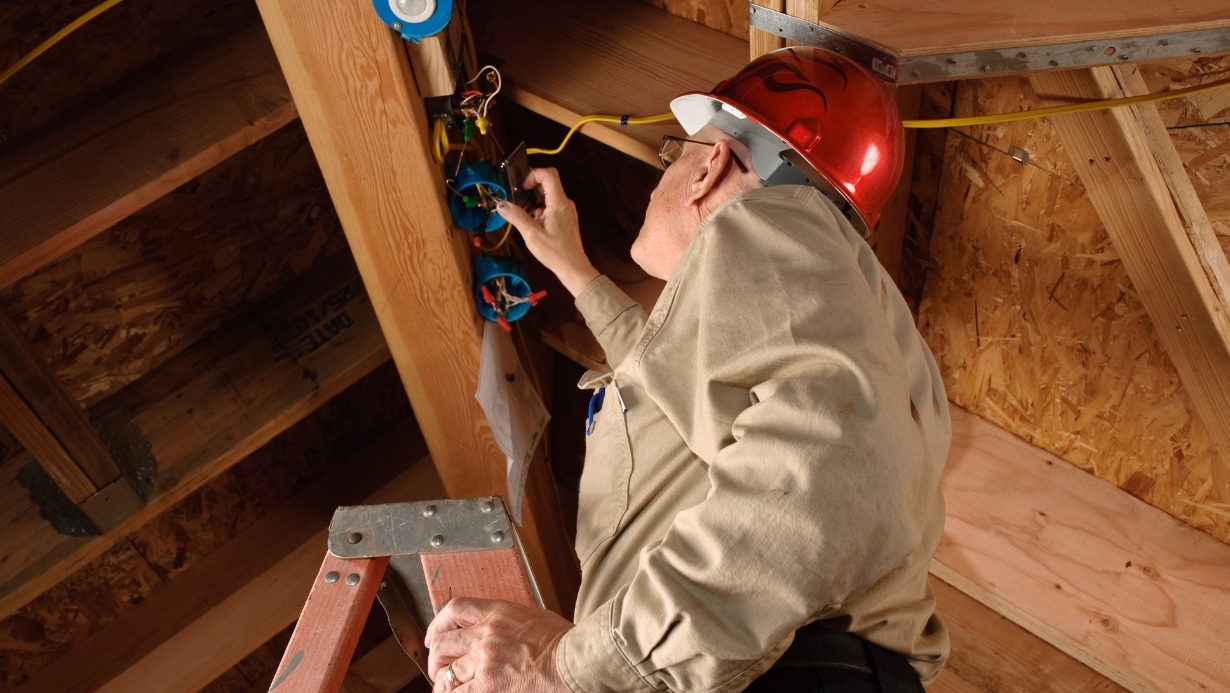Ready to Embark on an Exciting Journey with WIN?
Take the first step toward personal and financial freedom by filling out the interest form. One of our franchise advocates will be in touch with you soon!

California’s booming construction industry has created a strong demand for skilled construction inspectors. With the statewide goal of building 2.5 million new homes by 2030 and some of the strictest building codes in the country, construction inspectors play a crucial role in ensuring safety and compliance. Not only is this a rewarding career, but it also offers strong earning potential. Construction inspectors in California earn between $83,000 and $148,000 annually, depending on experience and location. This growing field presents significant opportunities for anyone looking to start or advance their career in construction inspection.

Construction inspectors ensure that buildings, bridges, roads and other structures comply with building codes and regulations at every phase of construction. They review blueprints, examine building materials and assess construction practices to ensure safety and quality. On-site inspections are essential to the job, as inspectors evaluate structural integrity, electrical and plumbing systems, and environmental safety standards. Inspectors work closely with builders, contractors and engineers to identify and rectify any safety concerns.
Strong analytical and technical skills are required, as inspectors must understand complex building codes and regulations. Communication skills are equally important, as inspectors need to clearly explain issues to construction teams and recommend solutions. Familiarity with construction methods, safety regulations and California’s specific codes can make an inspector indispensable in the state’s construction industry.
To become a construction inspector in California, the minimum educational requirement is a high school diploma or GED. While post-secondary education isn’t always mandatory, it can be incredibly beneficial, especially in a competitive job market. Many employers prefer candidates with additional coursework in construction technology, engineering or architecture.
California offers apprenticeship programs designed to provide practical, on-the-job training for aspiring construction inspectors. Programs like the Inspector Apprenticeship Program combine hands-on experience with classroom instruction in areas like blueprint reading and construction safety. These programs are a great option for those just starting out, as they provide real-world experience while you earn your certification. Apprenticeship programs typically last around two years and are often sponsored by employers, local government or trade organizations.
Community colleges in California also offer certificates or associate degrees in construction management, building inspection or related fields. These programs can give you a solid foundation in construction standards and regulatory compliance, helping you stand out to employers.

Gaining hands-on experience is a key step toward becoming a successful construction inspector. Many inspectors start in entry-level construction roles, such as construction assistants or laborers, which offer valuable insight into the building process. These positions provide experience in various aspects of construction and allow you to work alongside more experienced professionals.
Networking and mentorship are essential tools for career advancement in the construction industry. Joining industry associations, attending trade shows, or even participating in local building projects can help you make connections with experienced professionals who can offer advice and guidance. Having a mentor who understands the ins and outs of construction inspection can accelerate your learning and help you navigate the challenges of the job. Many apprenticeship programs include mentorship components that pair aspiring inspectors with seasoned professionals for hands-on learning.
In California, certifications aren’t always required to start working as a construction inspector, but they significantly improve job prospects and are often a requirement for career advancement. Most employers in California prefer or require inspectors to hold certifications such as those offered by the International Code Council (ICC) or the California Building Officials (CALBO).
The ICC certification is widely recognized and demonstrates proficiency in specific building codes, with options to specialize in areas like electrical, plumbing, mechanical, or structural inspections. In addition to initial certification, continuing education is essential to maintaining your credentials and staying up to date on California’s ever-evolving building codes. Many certified inspectors are required to renew their certification periodically, ensuring that they remain knowledgeable about the latest standards and regulations.
California also mandates that construction inspectors working on public works projects follow guidelines set by the Division of the State Architect (DSA), which often requires specialized certifications depending on the project.
After gaining experience and earning your certifications, you may decide to start your own construction inspection business. Owning your own business offers autonomy and the opportunity to grow your income, but starting from scratch can be challenging in a competitive market like California.
One of the best ways to mitigate the risks of starting a new business is to invest in a home inspection franchise. Franchising offers the support of an established brand, a proven business model and comprehensive training to help you succeed. With a franchise, you can start with a built-in customer base and ongoing support, which can help you navigate marketing, operations, and legal requirements. A franchise also gives you access to a wider network of inspectors, industry resources and marketing tools that would otherwise be difficult to obtain independently.

Joining the WIN Home Inspection is a streamlined process. WIN provides the comprehensive training, marketing support and ongoing resources you need to help you build a successful inspection business. With California’s growing demand for construction inspections, owning a WIN Home Inspection franchise can be a smart investment that puts you on the fast track to success. If you are interested in starting an inspection business with WIN, please submit the interest form.
» See: How to Start a Home Inspection Business
As a construction inspector in California, career growth opportunities are plentiful. Offering additional services like Radon Testing or Air Quality Testing can significantly increase your earning potential. With additional experience and certifications, many inspectors quickly advance to supervisory roles, overseeing larger inspection teams or working as consultants on complex projects.
California’s focus on sustainability and energy efficiency has also created demand for inspectors who are knowledgeable in green building standards and energy-efficient construction. Specializing in these areas can give you a competitive edge as California continues to prioritize environmentally friendly building practices.
The salary range for construction inspectors in California is among the highest in the nation, thanks to the state’s large volume of construction projects and stringent safety standards. The average construction inspector in California earns approximately $105,000 per year. However, salaries can range from around $80,000 to nearly $150,000 annually, depending on your experience, certifications and the complexity of the projects you inspect. Inspectors working in larger metropolitan areas like Los Angeles or San Francisco, or those specializing in niche areas of inspection, can expect to earn salaries at the higher end of this range.
Becoming a construction inspector in California offers a stable and rewarding career with significant opportunities for growth. Whether you choose to work for a private company or start your own business, the demand for skilled inspectors continues to rise. By meeting the educational requirements, gaining hands-on experience, earning certification, and considering all your opportunities, you’ll be well-positioned to build a successful career in this dynamic field.